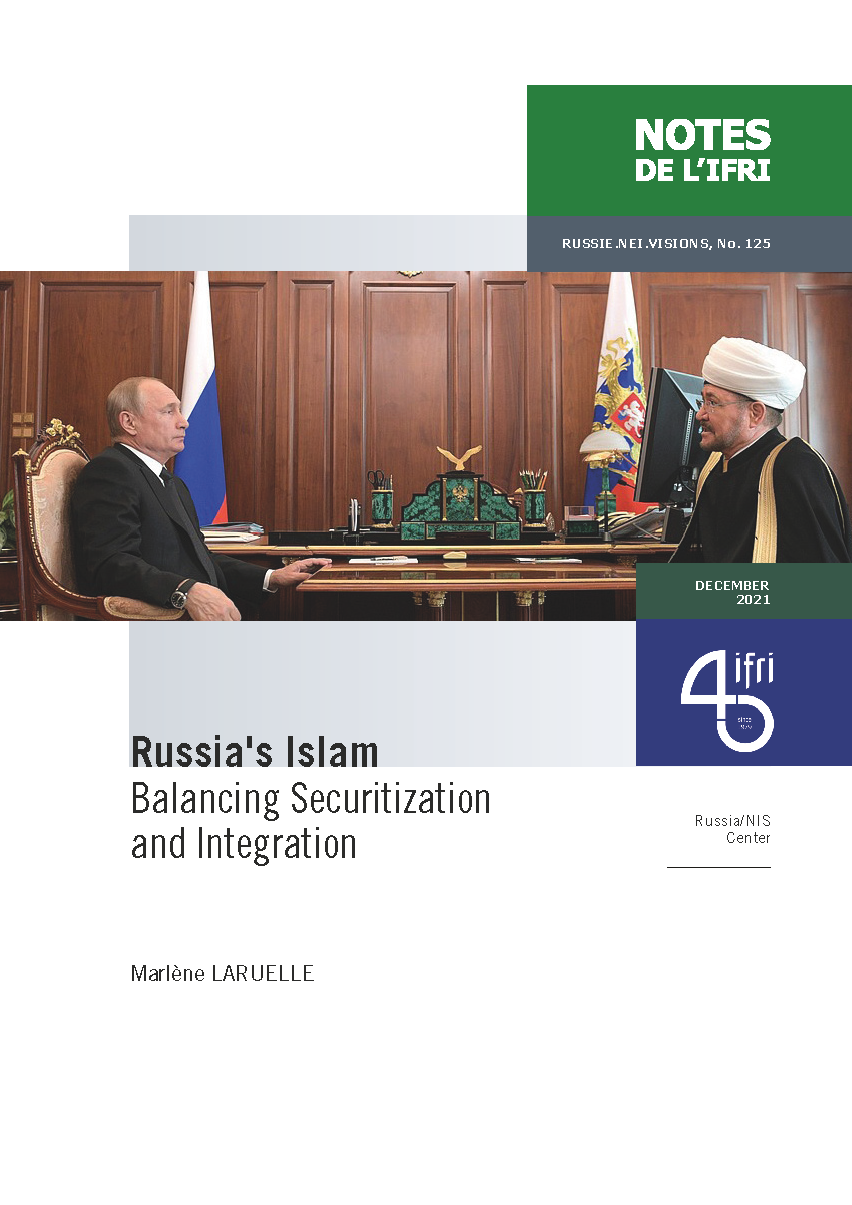Russia’s Islam: Balancing Securitization and Integration

Russia’s Islam has been much more than the two Chechen wars, and regular terrorist actions that have shaken the Russian territory. Islam constitutes an integral part of Russia’s history and culture, and the Putin regime regularly celebrates Islam’s contribution to the country and its great power reassertion.
Labor migrations from the North Caucasus as well as from Central Asia to Russia’s main metropoles, a dynamic Islamic Runet debating about Islam in Russian, and the—apparent only—paradoxical marriage of convenience between the Russian Orthodox Church and the Muftiates contribute to this alignment of interests between the Russian regime and its Muslim constituencies, far away from the simplistic, black and white vision promoted by Western media of a Russia intrinsically opposed to Islam.
This paper discusses this fragile balance between securitizing Islam(ism) as a threat to the country’s stability and multinational harmony and recognizing Muslim citizens as a central support for the Kremlin, both in terms of electoral provision, authoritarian practices, and promotion of conservative values.
Marlène Laruelle is a Research Professor at George Washington University (Washington DC), Director of the Institute for European, Russian and Eurasian Studies (IERES), Director of the Illiberalism Studies Program, and Co-Director of PONARS-Eurasia. Since January 2019, she has been an Associate Research Fellow at Ifri’s Russia/NIS Center. She works on the rise of the populist and illiberal movements, on the renewal of the conservative thought as well as on the ideological transformations and questions of national identity in the post-Soviet area, especially in Russia.
This content is available in French : L'islam de Russie. Équilibrer sécurisation et intégration
It is also available in Russian : Ислам в России. Поиск баланса между безопасностью и интеграцией
Download the full analysis
This page contains only a summary of our work. If you would like to have access to all the information from our research on the subject, you can download the full version in PDF format.
Russia’s Islam: Balancing Securitization and Integration
Related centers and programs
Discover our other research centers and programsFind out more
Discover all our analysesDeathonomics: The Social, Political, and Economic Costs of War in Russia
The report attempts to outline and examine a truly new phenomenon in Russian society, dubbed “deathonomics”—the making of a mercenary army against the backdrop of the Kremlin’s war in Ukraine, eventually replacing both the Soviet (conscript) and early new Russian (contract) armies. It notes that, by the end of 2023, this trend had turned the military service into one of the highest-paying professions in the country, something not seen in Russia on such a scale since the late 17th century.
Russia's Asia Strategy: Bolstering the Eagle's Eastern Wing
Among Russia’s strategic priorities, Asia traditionally played a secondary role compared to the West. In the mid-1990s, then Foreign Minister Yevgeny Primakov initiated a rapprochement with China and India. Then, in 2014, deteriorating relations between Russia and the West prompted Moscow to begin its “great pivot to the East”.
Kazakhstan After the Double Shock of 2022: Political, Economic and Military Consequences
The year 2022 represented a dual shock for Kazakhstan. In January, the country faced its most severe political crisis since independence, followed in February by Russia’s full-scale invasion of Ukraine, which cast uncertainty over the borders of post-Soviet states. These consecutive crises profoundly shaped Kazakhstan’s domestic and foreign policy.

How the Russian Army Changed its Concept of War, 1993-2022
The traditional and high-intensity war that has occurred in Ukraine since Russia decided to invade raises a key issue: did post-soviet Russian strategic thought really prepare Russia for waging this war?












